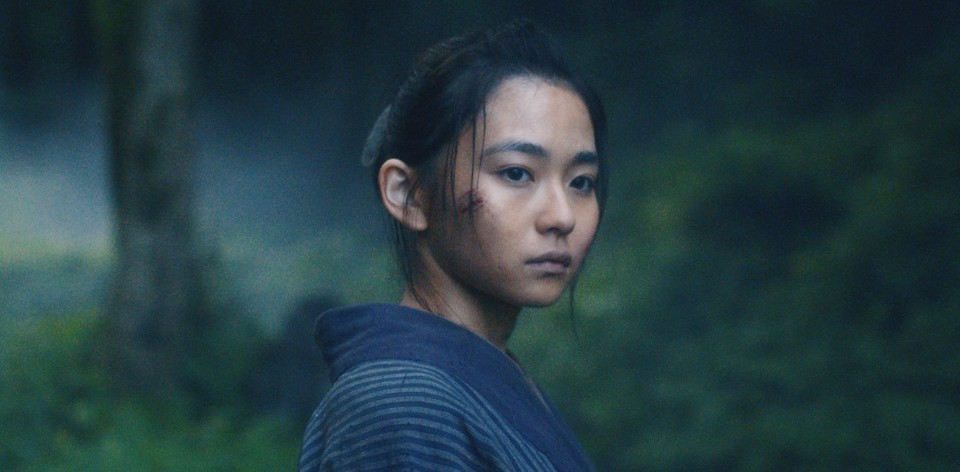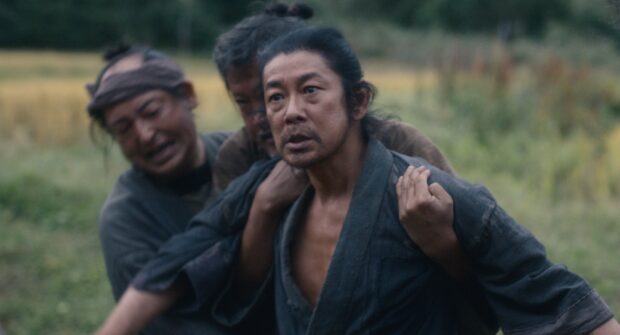Takeshi Fukunaga’s Ainu Mosir came along as part of a slow wave of recognition of Japan’s Ainu peoples. At its core, it explored the tensions between being seen and broader attitudes to specific cultural practices.
In Fukunaga’s follow-up film MOUNTAIN WOMAN (山女), the writer/director quietly continues his exploration of the similarities and divisions in Japan’s different worlds. If his previous work looked at cultural identity through the coming of age story structure, then here he applies his naturalistic lens to a period setting.
Fukunaga sets his film in the late 18th century, during one of the deadliest famines in the country’s history. The Great Tenmei famine followed the 1783 eruption of Mount Asama, and the film places us in the midst of a terrible crop season in the Tōhoku region of northern Honshū. Fukunaga immediately shows us the severity of the times through the infanticide of a newborn. “We have nothing to feed it,” says farmer Ihei (Masatoshi Nagase). “What else can we do?”
Ihei has already lost much of his land due to ancestral crimes. The only glimmer of hope in this desperate situation is their faith in the gods on Mount Hayachine, with the belief that the sacrifice of a virgin to the Mountain will save them all. Daughter Rin (Anna Yamada) has been chosen, but before she gets a chance she takes the blame for one of Ihei’s crimes and flees for the mountain. There she meets a hermit (Mirai Moriyama) who educates her in the ways of the woods.
MOUNTAIN WOMAN is a film about outsiders. There’s the literal kind, like the hermit, who lives outside society’s rules. Then there are those who are kept out by design. Would-be romantic pairing Taizo (Ryutaro Ninomiya) tries to encourage Rin by pointing out how he came from nothing to his current position. “Don’t be stupid, Taizo,” remarks Rin. “You know we’re not the same.” It doesn’t take a huge stretch to see what Fukunaga has coded into Rin’s lot in life, pointing out the doors locked to women in the 18th century (and beyond) in a single line.
This and other tensions underlie the film’s narrative, although Fukunaga prefers a gentler observational approach to his films. Using natural lighting, which gets very dark at times, there are long moments of quiet contemplation lovingly shot by cinematographer Daniel Satinoff. Which makes the punctuating points, including an act in the forest I won’t spoil here, all the more gut-punchy.
The climactic moments play out like something out of folk horror, with a slow ritualistic march of villagers taking Rin’s fate out of her own hands once again. If this was where Fukunaga left us, it would have been dark fatalism, yet the ending seems to suggest that faith and inevitability walk fairly closely on the same path.
2023 | Japan | DIRECTOR: Takeshi Fukunaga | WRITERS: Takeshi Fukunaga, Ikue Osada | CAST: Anna Yamada, Mirai Moriyama, Masatoshi Nagase, Ryutaro Ninomiya, Toko Miura | DISTRIBUTOR: Nippon Connection 2023 | RUNNING TIME: 100 minutes | RELEASE DATE: 6-11 June 2023 (Nippon Connection)







